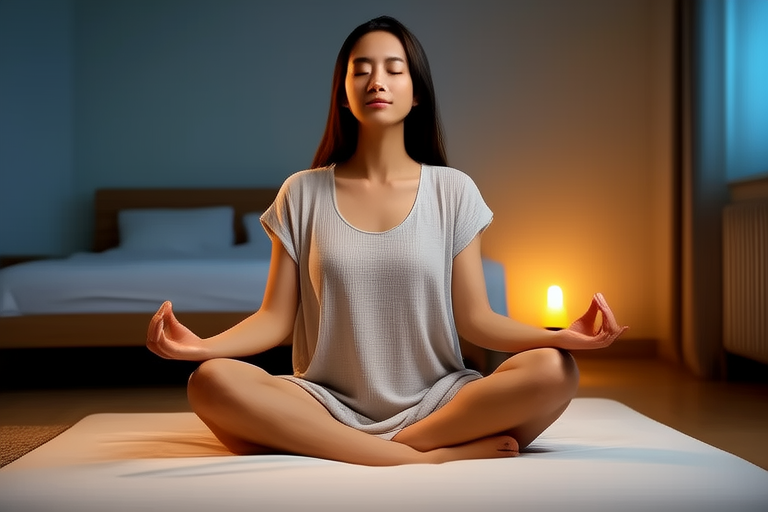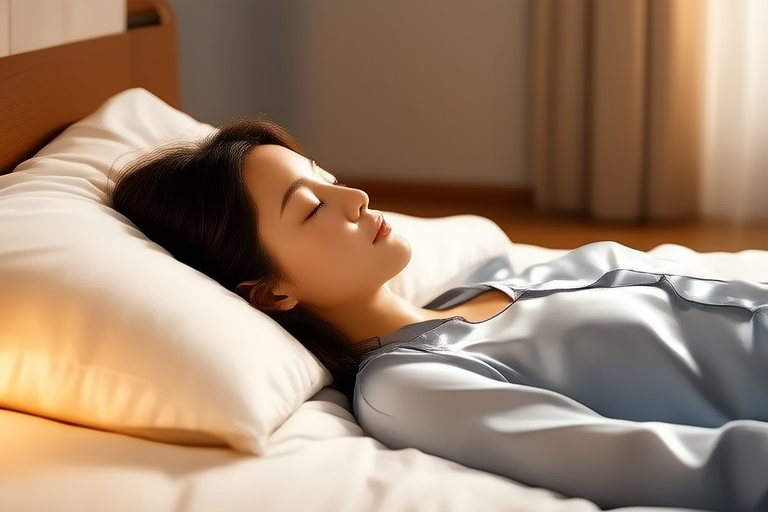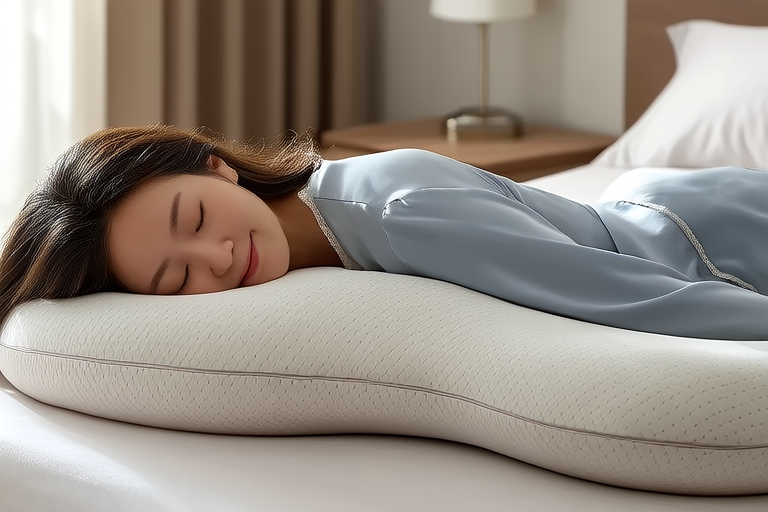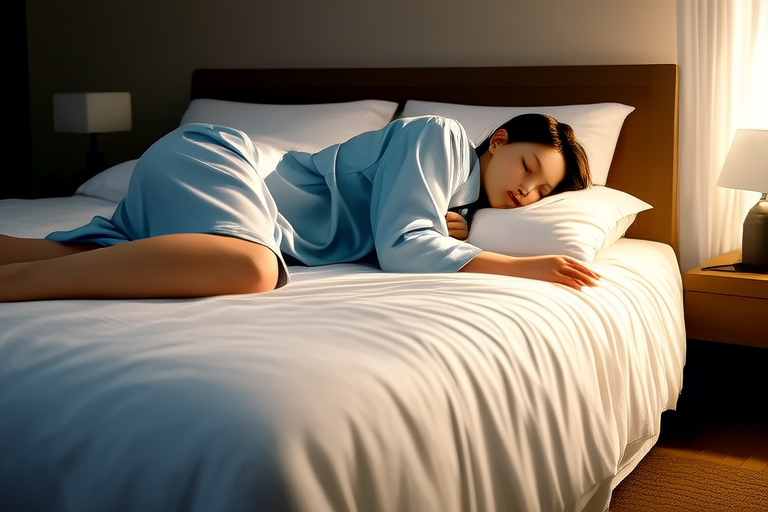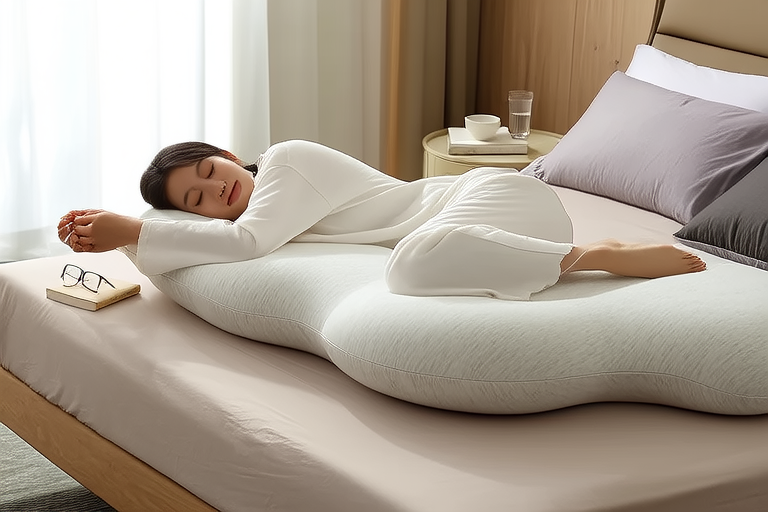Unlocking the Secrets to Better Sleep: Your Ultimate Guide to Sleep Health
Sleep is one of the most essential components of our daily lives, yet it often takes a backseat in our busy routines. While we may prioritize work, fitness, and social commitments, neglecting sleep can have profound consequences on our physical, mental, and emotional well-being. In this guide, we will explore the importance of sleep for overall health, delve into common sleep disorders, and provide actionable tips to help you achieve restorative, high-quality sleep. Let’s unlock the secrets to better sleep together.
The Importance of Sleep for Overall Health
Sleep is not merely a period of rest; it is a vital biological process that supports nearly every aspect of our health. During sleep, your body undergoes critical processes such as tissue repair, immune system strengthening, and memory consolidation. Here’s why prioritizing sleep should be non-negotiable:
- Cognitive Function: Sleep plays a crucial role in brain health. It enhances memory retention, problem-solving skills, and decision-making abilities. Chronic sleep deprivation, on the other hand, can impair focus and increase the risk of cognitive decline over time.
- Emotional Well-Being: A good night’s sleep helps regulate emotions and reduce stress. Lack of sleep has been linked to mood swings, irritability, and even conditions like anxiety and depression.
- Physical Health: Sleep is essential for maintaining a healthy heart, managing weight, and reducing inflammation. Studies show that poor sleep increases the risk of chronic conditions such as obesity, diabetes, and cardiovascular diseases.
- Immune System Support: Adequate sleep strengthens your immune system, making it easier for your body to fight off infections and recover from illnesses.
In short, sleep is the foundation upon which your health is built. Without it, even the best diet and exercise routine cannot compensate for the toll that sleep deprivation takes on your body and mind.
Common Sleep Disorders and Their Impact
While everyone experiences occasional sleepless nights, persistent sleep issues could indicate an underlying disorder. Understanding these conditions can help you identify potential problems and seek appropriate solutions. Below are some of the most common sleep disorders:
Insomnia
Insomnia is characterized by difficulty falling asleep or staying asleep, despite having the opportunity to do so. It can be caused by stress, anxiety, or certain lifestyle habits. Chronic insomnia not only affects daytime functioning but also increases the risk of accidents and mental health issues.
Sleep Apnea
Sleep apnea is a serious condition where breathing repeatedly stops and starts during sleep. This disrupts rest and can lead to fatigue, headaches, and long-term health complications such as high blood pressure and heart disease. Common symptoms include loud snoring and gasping for air during sleep.
Restless Leg Syndrome (RLS)
RLS causes uncomfortable sensations in the legs, leading to an irresistible urge to move them. This often occurs at night, making it difficult to fall asleep. RLS can significantly impact sleep quality and leave individuals feeling exhausted during the day.
Narcolepsy
Narcolepsy is a neurological disorder that affects the brain’s ability to regulate sleep-wake cycles. People with narcolepsy may experience sudden episodes of extreme drowsiness or uncontrollable sleep attacks during the day.
If you suspect you have any of these conditions, it’s important to consult a healthcare professional. Early diagnosis and treatment can make a significant difference in improving sleep quality and overall health.
Practical Tips for Improving Sleep Quality
Achieving better sleep doesn’t have to be complicated. Small changes in your daily habits can lead to significant improvements in sleep quality. Here are some practical tips to help you get started:
Establish a Consistent Sleep Schedule
Going to bed and waking up at the same time every day, even on weekends, helps regulate your body’s internal clock. This consistency reinforces your natural sleep-wake cycle and makes it easier to fall asleep and wake up feeling refreshed.
Create a Pre-Sleep Routine
Engage in relaxing activities before bed to signal to your body that it’s time to wind down. Reading, taking a warm bath, or practicing mindfulness meditation can help calm your mind and prepare you for restful sleep.
Limit Screen Time Before Bed
The blue light emitted by phones, tablets, and computers can interfere with the production of melatonin, a hormone that regulates sleep. Try to avoid screens at least an hour before bedtime or use blue-light-blocking glasses if necessary.
Manage Stress and Anxiety
Stress is one of the biggest culprits behind sleepless nights. Incorporate stress-reducing practices such as journaling, deep breathing exercises, or yoga into your daily routine to promote relaxation and improve sleep quality.
Avoid Stimulants and Heavy Meals
Caffeine, nicotine, and alcohol can disrupt your sleep patterns. Similarly, eating heavy meals close to bedtime can cause discomfort and indigestion, making it harder to fall asleep. Aim to finish meals at least two to three hours before bed.
The Role of Diet and Exercise in Sleep
Your lifestyle choices, including diet and exercise, play a pivotal role in determining the quality of your sleep. Here’s how they contribute:
Dietary Choices That Promote Sleep
Certain foods can support better sleep by providing nutrients that aid relaxation and melatonin production. For example:
- Tryptophan-Rich Foods: Foods like turkey, chicken, nuts, and seeds contain tryptophan, an amino acid that helps produce serotonin and melatonin.
- Magnesium-Rich Foods: Magnesium has calming effects on the nervous system. Include leafy greens, bananas, and almonds in your diet.
- Herbal Teas: Chamomile and valerian root teas are known for their soothing properties and can help induce sleep.
Exercise for Better Sleep
Regular physical activity has been shown to improve sleep duration and quality. Exercise reduces stress, boosts mood, and helps regulate your circadian rhythm. However, timing matters—vigorous workouts close to bedtime may energize you and make it harder to fall asleep. Aim to complete intense exercise at least three hours before bed.
How to Create a Sleep-Friendly Environment
Your bedroom environment plays a crucial role in promoting restful sleep. Transforming your space into a sanctuary for sleep can make a world of difference. Consider the following adjustments:
Optimize Lighting
Darkness signals to your brain that it’s time to sleep. Use blackout curtains or an eye mask to block out external light sources. Dimming the lights an hour before bed can also help transition your body into sleep mode.
Control Noise Levels
Noise disturbances can interrupt your sleep cycle. If you live in a noisy area, consider using earplugs, a white noise machine, or a fan to drown out disruptive sounds.
Adjust Temperature
A cooler room temperature (around 60-67°F or 15-19°C) is ideal for sleep. Ensure your bedding is breathable and appropriate for the season to maintain comfort throughout the night.
Invest in Comfortable Bedding
Your mattress and pillows should provide adequate support and comfort. Replace old or worn-out bedding to ensure a restful night’s sleep.
Declutter Your Space
A tidy, organized bedroom promotes a sense of calm and relaxation. Remove unnecessary items and keep your sleeping area free from distractions like work materials or electronic devices.
Conclusion
Sleep is not a luxury—it’s a necessity. By understanding its importance, addressing potential sleep disorders, and implementing practical strategies, you can unlock the secrets to better sleep and enhance your overall well-being. Remember, achieving optimal sleep health requires consistency and commitment. Start small, make gradual changes, and prioritize your sleep as you would any other aspect of your health. With these tools and insights, you’re well on your way to enjoying restorative, rejuvenating sleep every night.






